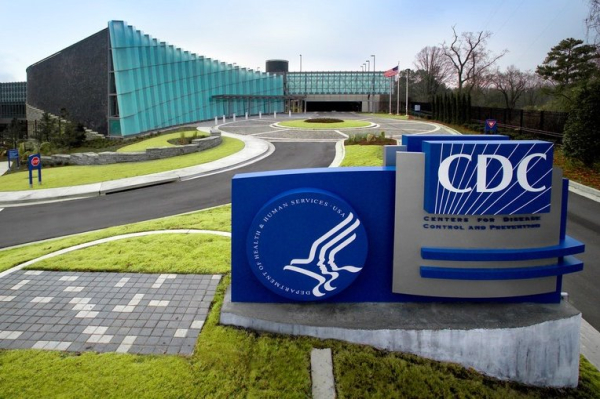Recent layoffs stop CDC from helping with lead contamination at Milwaukee schools


Officials with the Centers for Disease Control and Prevention on April 3 denied Milwaukee Public Schools’ request for help with lead contamination in several buildings due to recent staffing layoffs. File Photo by James Gathany/Centers for Disease Control and Prevention/Wikimedia Commons
Officials for the Centers for Disease Control and Prevention cited recent layoffs while denying Milwaukee Public Schools officials’ request for help with a lead contamination problem in several schools.
MPS and Wisconsin health department officials on March 26 sought help with lead contamination within the school system but on April 3 were denied “due to the complete loss” of the CDC’s lead poisoning prevention staff, the Milwaukee Journal Sentinel reported on Friday.
“I sincerely regret to inform you that due to the complete loss of our Lead Program, we will be unable to support you with this,” Aaron Bernstein, director of the CDC’s Toxic Substances and Disease Registry, said in the April 3 email to MPS officials, CBS News reported.
MPS and state officials sought help from the CDC’s Epi-Aid division, which is tasked with enabling rapid-response investigations regarding urgent public health concerns.
“This only underscores the importance of the role local public health plays in protecting communities — and the challenges we now face without federal expertise to call on,” Milwaukee Health Department spokesperson Caroline Reinwald told CBS News.
The Epi-Aid division is supposed to assist with urgent public health problems by sending an investigative team within one to three weeks to help with “making rapid, practical decisions for actions to control and prevent the public health problem,” according to the Epi-Aid site.
MPS has identified seven schools with lead contamination and temporarily closed three while undertaking lead remediation.
The lead contamination could have contributed to four students testing positive for lead poisoning in recent months.
Most school buildings within the MPS system were built prior to 1978 and before the federal government banned the use of lead-based paint.
Recent testing shows many MPS schools pose “significant lead hazards” for students and staff.
School and state health officials sought federal assistance with developing a strategy to test students for lead poisoning and treating them.
They also sought federal help with community outreach regarding the matter but were refused.
Lead poisoning can affect the brains and nervous systems in children, which could slow their development and cause speech and hearing problems.
MPS and city officials continue inspecting school buildings to identify lead problems and address them.

